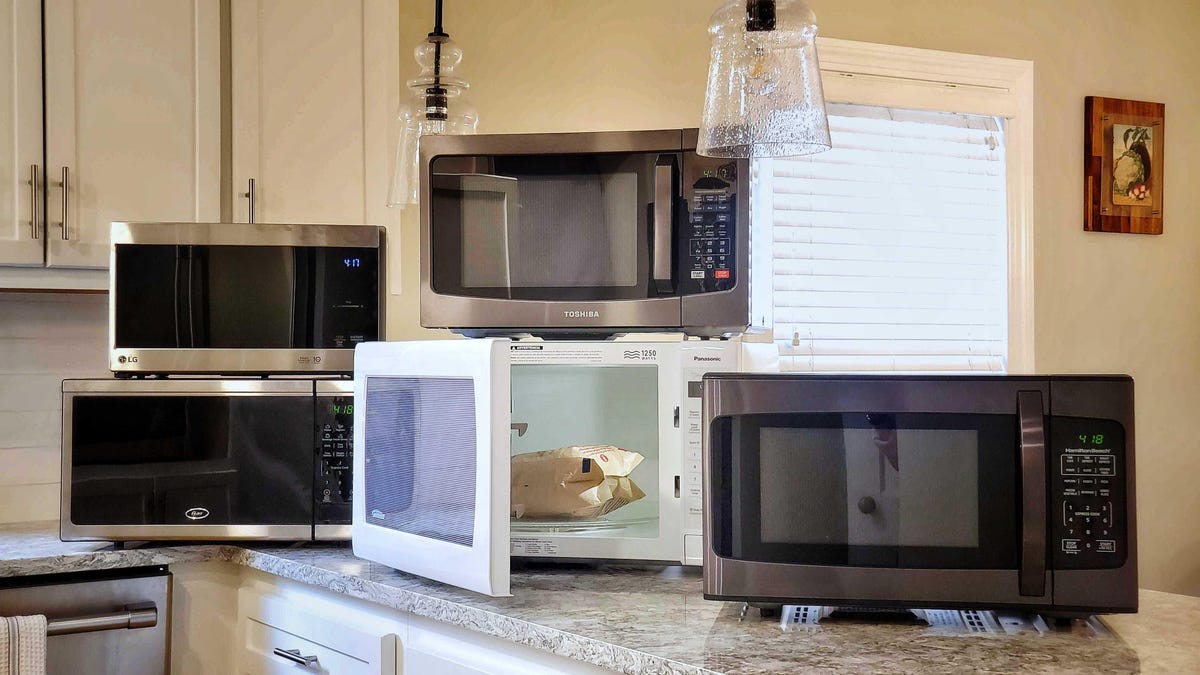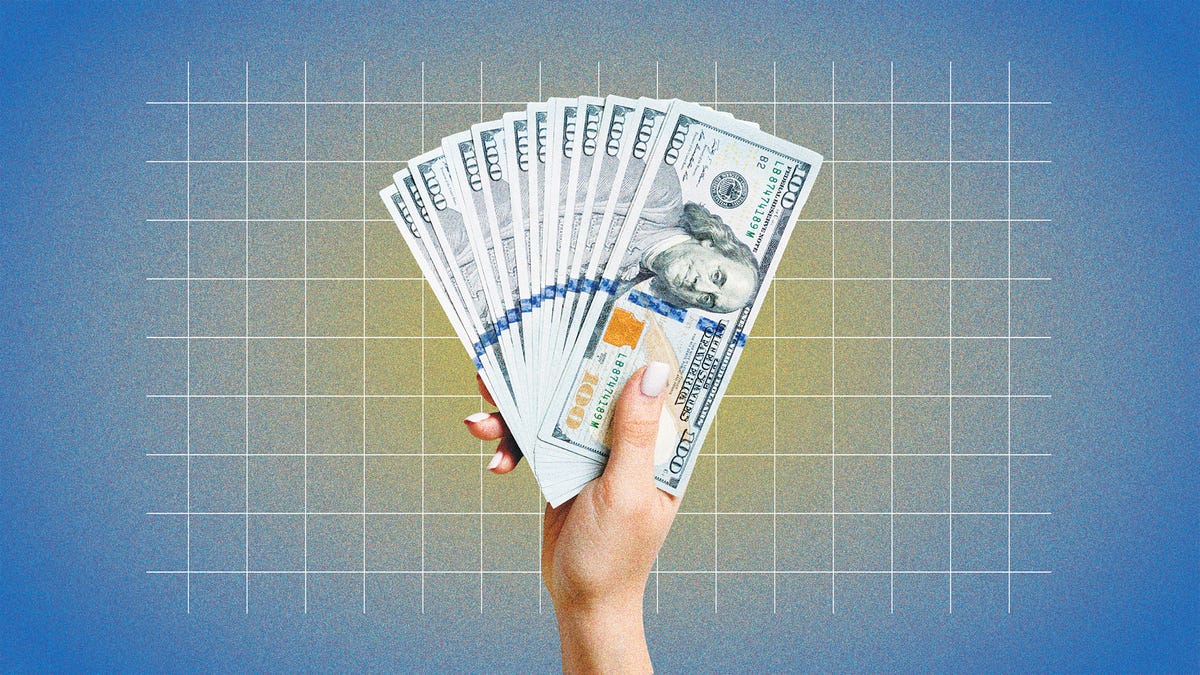Do you know your hearing health score? My Apple AirPods Pro 2 hearing test said I'm a 6 in my left, and a 12 in my right. The numbers might not make much sense to you now, but when the software becomes public next week, you could find yourself in conversations comparing hearing scores with family and friends.
Apple gave me early access to try the company's hearing health software on AirPods Pro 2, which turn the earbuds into a clinical-grade hearing aid once you take a hearing test on your iPhone or iPad. Apple says it will be pushed out to devices starting next week in an iOS 18 software update.
Watch this: Testing Apple's Hearing Aid: Hands-On with AirPods Pro 2 Software Update
09:48
Hearing loss is on the rise in the United States. It's estimated that 44.1 million of American adults have some level of hearing loss, and more than half of those people could significantly benefit from wearing a hearing aid. But research shows most affected adults haven't even tried one.
My first Apple hearing test results. Your record of tests are saved in the Health app and can be shared to anyone as a PDF.
Bridget Carey/CNETSo here comes Apple, updating a two-year-old product with FDA-authorized software that gives anyone with these AirPods an instant test and hearing aid. If it's that easy to take a test, it might make comparing hearing scores as commonplace as comparing one's eyesight prescription numbers (and it might open up the conversation of hearing loss if you pass it to a family member to try).
A week ago I began using the new features -- which I go over in my video embedded above. The software also includes updated "Hearing Protection" software that guards ears from sustained loud sounds. I went on a journey to better understand the challenges of treating hearing loss, the technology available today and how Apple's test compares to a professional audiogram you would find at a doctor's office.
How the AirPods hearing test works
Once you update your device, you'll see a section for hearing health in your AirPods settings. This is where you will find the option to take a hearing test.
The test can take roughly 10 minutes, and it must be done in a very quiet room. That means no one can be talking or even rustle with objects nearby. When the AirPods detect any outside sound, the test will pause. I've found even that church bells from another building in the distance would pause a test. But once the noise ends, you can continue.
When it starts, it checks the seal of the ear tips to make sure you have a good fit for the size of your ears. The test involves tapping the screen every time you hear beeping tones. It does get very faint at a certain point and may require some concentration.
If at any point the AirPods detect a noise, the hearing test will pause until it is quiet again.
Bridget Carey/CNETYou can take the test as many times as you want, and the health app keeps a record of all your test results. Once the test is complete, you get the ability to turn on the hearing aid mode, which enhances any frequencies around you that your test indicated that you might need amplified.
If you are familiar with the AirPods Transparency Mode, where it lets you hear the world around you clearly, you can think of the hearing aid as a more enhanced version of Transparency, which can be applied to sounds in the outside world as well as media and calls.
You can make adjustments to the amplification and balance by diving deeper into the controls to fine tune it all. When Hearing Aid Mode is on, your volume controls on the phone also change. You can slide to adjust the volume of outside environment noise or just the volume of the media you are playing.
A new shortcut menu button also appears in the Control Center -- it looks like an ear -- and it can help you quickly access adjustments.
Go ahead, pass the AirPods to Grandma
If you let someone else use your AirPods to take a hearing test (like I did here), it will show their results next to yours. In settings, you can choose which result is applied to the hearing aid software.
Bridget Carey/CNETThe hearing aid software is designed to be used by one person (and Apple says it's for people aged 18 and older). But it is possible to pass the AirPods to a friend or family member if they are curious about their hearing and want to take a test.
The app keeps a record of all your past tests and gives an audiogram line graph showing your hearing threshold level in decibels. The results can be saved as a PDF to share.
But do remember to switch it back to your results before using the AirPods again yourself. You don't want grandma's hearing test result to change your hearing aid settings and blast your ears.
In the AirPods hearing health settings, click Hearing Assistance. From here you can click on Update Hearing Test Results and switch to which test you want to apply for the hearing aid.
Comparing Apple's hearing test to a professional audio test
I wanted to see how Apple's software would compare to a professional hearing test from an audiologist. I visited the Columbia University Irving Medical Center in New York City and got a hearing test in a double-door, sound-proof room.
A professional hearing test is more thorough than what Apple provides, but my results in both tests were very similar.
Richard Peterson/CNETAfter my ears were inspected, the audiologist hooked me up to a pair of foam, wired earbuds. I was given the classic beep test, where I raised my hand when I heard tones. That part took about the same amount of time as Apple's experience -- but obviously this was much more controlled and quiet. The audiologists also did more than Apple's test, by seeing if I could understand certain tricky words played in my ear.
My results were given to me on paper, with a handwritten score marked on a chart -- and the line graph was pretty similar to the chart I got from Apple's test a day prior. Both found I had some difficultly hearing some of the highest frequencies.
Your professional evaluation can be applied to AirPods
If you get a test like this done by a professional audiologist, you can actually upload your paper printout results into the app and apply those results to your AirPods hearing aid settings.
Here's how: In the Health app, go to the section on Hearing and click on Hearing Test Results. In the top right corner, click "Add Test" and then choose "Use a Prior Test Result." I could then use my iPhone camera to scan the image of the test, and Apple graphed it exactly to how it was marked on paper. This now becomes your most recent test that is applied to your hearing aid amplification settings.
If you get a paper audiogram from a professional hearing test, you can scan the image of the graph in Apple's Health app, and those results can be applied to your AirPods hearing aid settings.
Richard Peterson/CNETYou don't need hearing trouble to like Conversation Boost
My hearing loss was very minimal, but I still activated the hearing aid mode during various moments to better understand the tech.
One interesting feature is called Conversation Boost, which amplifies voices being spoken 7 to 10 feet in front of your face. I tested this feature at a noisy bar with my video producer, Richard Peterson. When I activated Conversation Boost, it made his words stand out very clear from the music and chatter all around us.
This could be especially helpful when someone has trouble making out what people are saying in loud, crowded spaces -- as long as you don't mind socializing with AirPods in your ears.
AirPods are cheap compared to hearing aids
The AirPods Pro 2 have a list price of $250 (but often can be found on sale for $200). That puts it cheaper than many over-the-counter hearing aids -- but with only 6 hours of battery life, it's not a true all-day hearing aid replacement.
Compare that price to the Jabra Enhance line, also an over-the-counter brand that doesn't need a perscription. Jabra's models range from $1,000 to $1,700 and have rechargeable batteries that last 24 hours.
There are many choices for over-the-counter hearing aids, so it's worth the time to research the differences between models. Other consumer tech brands have been making hearing aids, including Bose and Sony. But it's worth noting that over-the-counter models are designed for people who perceive to have mild or moderate hearing loss (not severe loss). If someone chooses to go with a prescription hearing aid, it can cost anywhere between $2,000 and $7,000.
During my visit to Columbia University's Medical Center, I spoke with Dr. Justin Golub of the Otolaryngology Department (more commonly referred to as ear, nose and throat doctors). He explained that patients would need to be tech savvy to figure out how to do an accurate hearing test at home, researching which apps might be best ranked to do the test with compatible headphones.
"It can be done, but the question is, 'What is the quality?' Some apps are better than others," Golub said, adding that Apple's could make this easier and more accurate for testing yourself at home.
Regarding the price, Golub said $250 for an over the counter hearing aid is "very cheap" -- but when the AirPods battery doesn't last all day, he believes it could be more of an entry-level device that could help people in certain situations, rather than a complete hearing aid replacement for someone who needs all the time.
"If you need a hearing aid, get a real hearing aid," Golub said.
Perspective from a hearing aid user
I can't personally tell you how the AirPods amplification quality compares to other hearing aids on the market, so I wanted perspective from someone who actually uses hearing aids daily. In my CNET camera crew, we have someone who knows this issue well. Last week I met up with social producer Tara Brown and her 77-year-old mother Nancy, who has been using hearing aids for a decade now.
I had her take a test in a quite library room, and her hearing loss was moderate with a much higher score on the scale: she's a 55 compared to my 12.
Nancy is currently using the Jabra Enhance Pro, which has replaceable batteries instead of rechargeable, and it can also be controlled by a Jabra smartphone app. She ordered it online without a prescription after getting a hearing test from an audiologist.
She tells me she couldn't rely on something like AirPods since she doesn't want to deal with needing to recharge it throughout the day. But she saw the AirPods as something that had potential for people who like listening to music, since her hearing aids do a poor job of playing music as a bluetooth earpiece, making audio sound "tinny."
Nancy told me she dealt with hearing loss for years without realizing her troubles might have been effecting her business and quality of life. Looking back, she believes it would have helped if she adopted hearing aids sooner -- but the prices were also higher a decade ago.
AirPods can get the conversation started
I'm sure we will hear more AirPods-as-hearing aid testimonials accounts when the software releases. But for anyone with a pair of these, it easier to get the hearing loss conversation started with older family members who might be reluctant to take a hearing test and use a hearing aid.
Dr. Golub told me one of the biggest barriers for his patients was the acceptance that they needed a hearing aid. Maybe handing someone your iPhone for a quick test makes it possible for them to see proof they could hear better with help.
The Apple Watch has a decibel reader. While using the AirPods Pro 2, I could tap the watch screen to toggle between viewing the actual decibels coming from the piano, or view how many decibels it was lowered to in my ear with hearing protection mode.
Bridget Carey/CNETUpdated Hearing Protection blocks blaring sounds
The AirPods did have ways to protect ears from harmfully loud sounds before, but the programming is more advanced with the AirPods Pro 2 update, doing a better job at keeping the sound signature of any sustained loud music moments. It works when the earbuds are set to Transparency, Adaptive Audio or Active Noise Cancellation modes.
You may be someone who would just rather use more traditional earplugs at a concert or during band rehearsal -- but Apple's system aims to keep all the details of the sound there and just pass it to you at a safer level instead of muffling it.
This is not going to help you for extremely loud impulse sounds, so don't use it as protection at a shooting range or for big bangs of fireworks. But banging on a piano? That I found, did work.
For this test, my husband hit a few bars of Beethoven hard while practicing on the piano at home. My Apple Watch gives a live reading of the decibel levels it detects, and I noticed the decibels got anywhere from 90 to as high as 100 as he played.
Apple's health app warns that 30 minutes of exposure to something at 90 decibels every day can cause temporary hearing loss. Using the AirPods in Transparency mode noticeably made it more comfortable to stand beside the piano without feeling like I lost any of the sound -- and the Apple Watch reported it was lowering the exposure for me by about 10-12 decibels at times.
That means playing Beethoven doesn't mean we have to loose our hearing like Beethoven. It also means you don't have to blast your own music louder to drown out something else loud in your world.
It's does feel a bit ironic that earbuds could contribute to hearing loss by playing loud music, and now here we have Apple marketing AirPods as something that is supposed to help prevent hearing loss -- or help us manage it.
So if you forget you earplugs at home for the concert, maybe the AirPods already in your pocket can help. Apple says the software is only able to protect against sustain sounds as loud as 110 decibels. Depending on how loud that concert is, you may still want to pack a pair of old-tech earplugs in your pocket.
Don't be surprised the next time you see someone wearing AirPods while enjoying a concert venue -- although it might be awhile before that doesn't look odd to me.





:quality(85):upscale()/2024/10/31/831/n/49351773/b7bf33836723d2f0643c55.51137847_.jpg)



 English (US) ·
English (US) ·